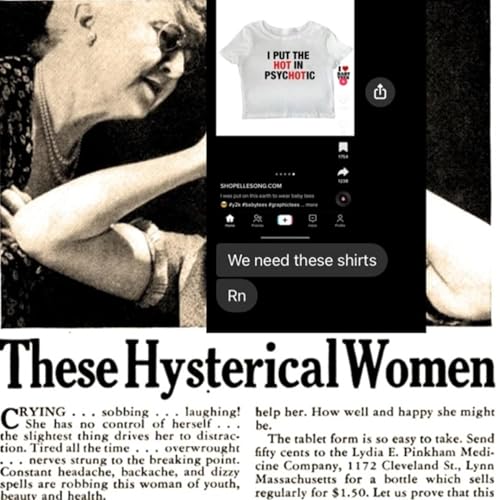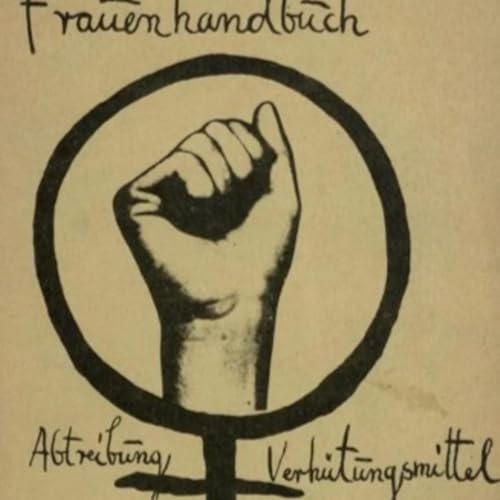Joined by medievalist Naoki Matsumoto, Hot Girl Histories says HAPPY PRIDE MONTH! by diving into trans studies in medieval history. We examine cases of "transvestites," "sodomites," and lesbians, then digress into sex work and physical disability histories in the medieval period. Starting in 1394 with the case against Eleanor Rykener in London, we debate historiography about deadnaming and pronouns in relation to historical actors. We also discuss Rolandina Ronchaia, a transwoman from mid-fourteenth century Venice, and the trial of Katherina Hetzeldorfer in 1477 Nuremberg, the only case of lesbian female sodomy. Finishing off with examples of medieval communal solidarity for those suffering from Hansen's disease and blindness, we debunk popular perceptions of the "dark ages." HGH IS NOW ON APPLE PODCASTS!!! Go leave a review and I will love you forever :) For all things HGH: https://beacons.ai/hotgirlhistories Works Cited and Related Reading On queer people, women, and sex workers in the medieval period: Boyd, David Lorenzo, and Ruth Mazo Karras. “The Interrogation of a Male Transvestite Prostitute in Fourteenth-Century London.” GLQ: A Journal of Lesbian and Gay Studies 1, no. 4 (1995): 459–65. https://doi.org/10.1215/10642684-1-4-459.Bychowski. The transgender turn, Eleanor Rykemer speaks back. in Trans historical, gender plurality before the modern ed. Greta Lafleur, Masha Raskolnikov and Annna Klosowka, (Ithaca, 2021)https://transreads.org/wp-content/uploads/2021/12/2021-12-23_61c4ded98f1a1_TransHistoricalGenderPluralitybeforetheModernbyGretaLaFleureditorMashaRaskolnikoveditorAnnaKlosowskaeditor.pdfKarras, Ruth Mazo, and Tom Linkinen. “John/Eleanor Rykener Revisited.” In Founding Feminisms: Essays in Honor of E. Jane Burns, edited by Daniel O’sullivan and Laine Dogged. D.S. Brewer, 2016.http://hdl.handle.net/2262/91231 Karras, Ruth Mazo. Common Women : Prostitution and Sexuality in Medieval England. Cary: Oxford University Press, USA, 1996. McSheffrey, Shannon, ‘The Case of Rolandina Ronchaia, a 14th-century transwoman?’, Princeton University [accessed 26 November 2022] Page, Jamie, Prostitution and Subjectivity in Late Medieval Germany (Oxford, 2021). Paolella, Christopher, Human trafficking in Medieval Europe: Slavery, sexual exploitation and prostitution, (Amsterdam, 2020). Rasmussen, Ann Marie and Westphal-Wihl, Sarah (eds.), Ladies, whore and holy women: A sourcebook in courtly, religious and urban culture of late Medieval Germany, (Kalamazoo, 2010). Spencer-Hall, Alicia, and Blake Gutt, eds. Trans and Genderqueer Subjects in Medieval Hagiography. Amsterdam University Press, 2021. https://doi.org/10.2307/j.ctv1ks0cj4. 'The Trial of Katherina Hetzeldorfer (1477)', in Helmut Puff, 'Female Sodomy', 60-61, https://muse.jhu.edu/pub/4/article/16457/pdf On disabilities: Scott, Anne M. Experiences of Charity 1250-1650 Revisiting Religious Motivations in the Charitable Endeavour. Lund Humphries Publishers, 2015. https://r3.vlereader.com/Reader?ean=9781472443397. Eyler, Joshua. Disability in the Middle Ages : Rehabilitations, Reconsiderations, Reverberations. Farnham: Ashgate, 2010. 'Humbert of Romans, To the Leprous', in Goodich, Other Middle Ages, 146-149 https://doi-org.ezproxy.st-andrews.ac.uk/10.4324/9781315577388. Metzler, Irina. Disability in Medieval Europe. Routledge, 2006. https://ebookcentral.proquest.com/lib/st-andrews/reader.action?docID=261311. O'Tool, Mark P., 'The povres avugles of the Hôpital des Quinze-Vingts: disability and community in Medieval Paris' in Difference and identity in Francia and medieval France, ed. Meredith Cohen & Justine Firnhaber-Baker (Farnham, 2010) 157-174 https://content.talisaspire.com/sta/bundles/61dc28901b02c958c5778774.
Más
Menos
 Sep 26 20231 h y 2 m
Sep 26 20231 h y 2 m Sep 5 202345 m
Sep 5 202345 m 1 h y 1 m
1 h y 1 m 1 h y 2 m
1 h y 2 m Jun 26 202351 m
Jun 26 202351 m 1 h y 11 m
1 h y 11 m May 1 20231 h y 4 m
May 1 20231 h y 4 m 1 h y 9 m
1 h y 9 m